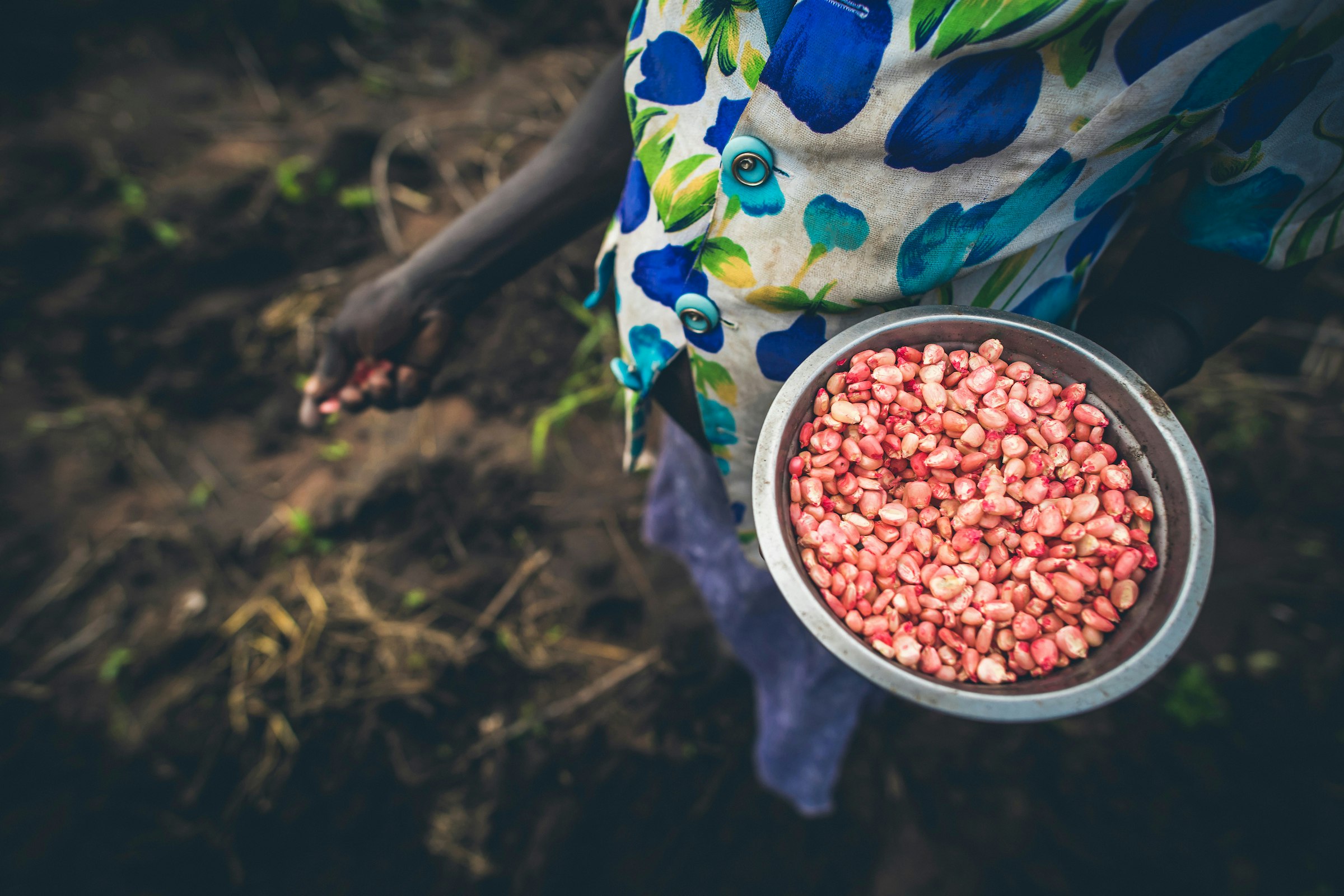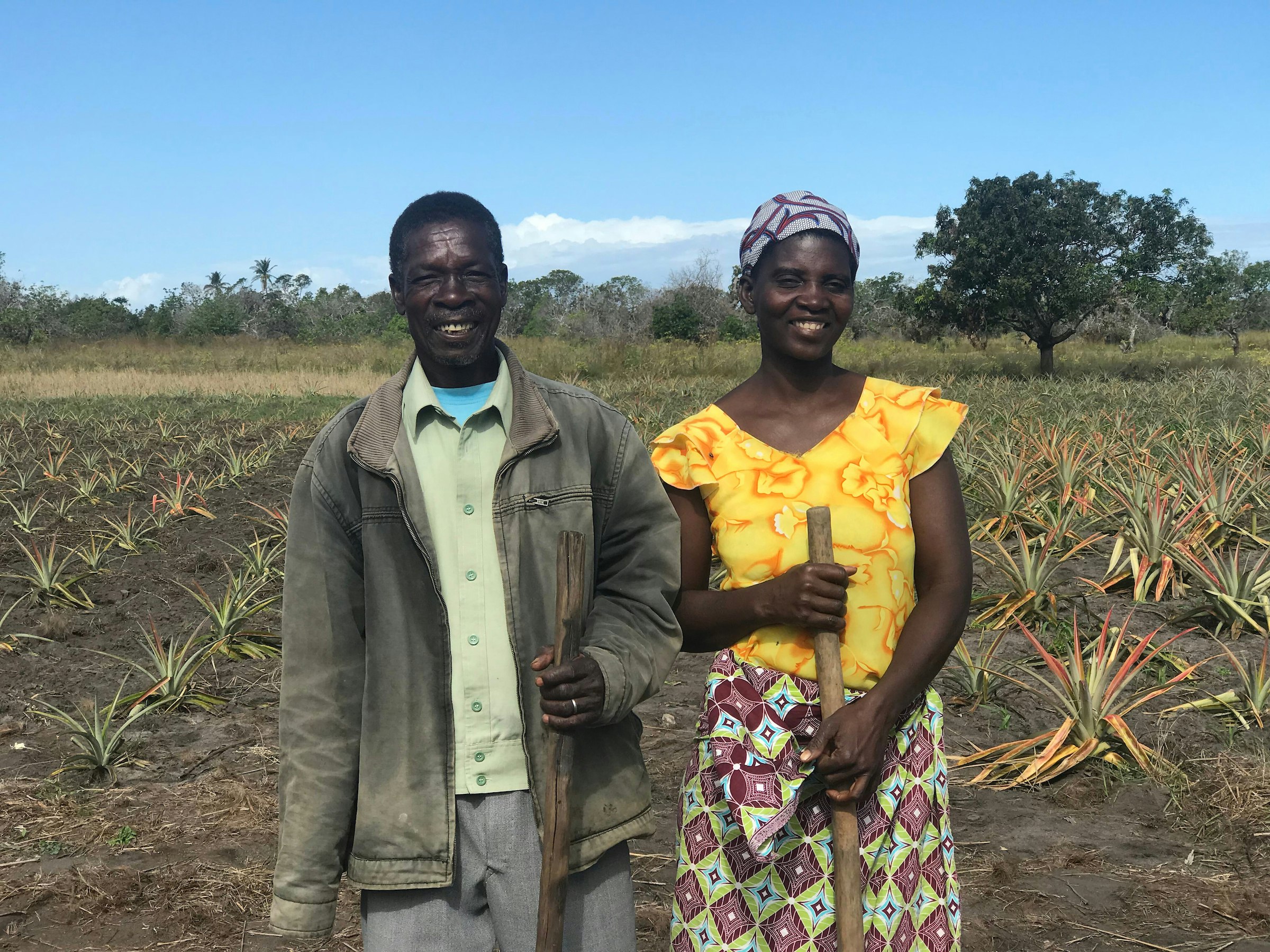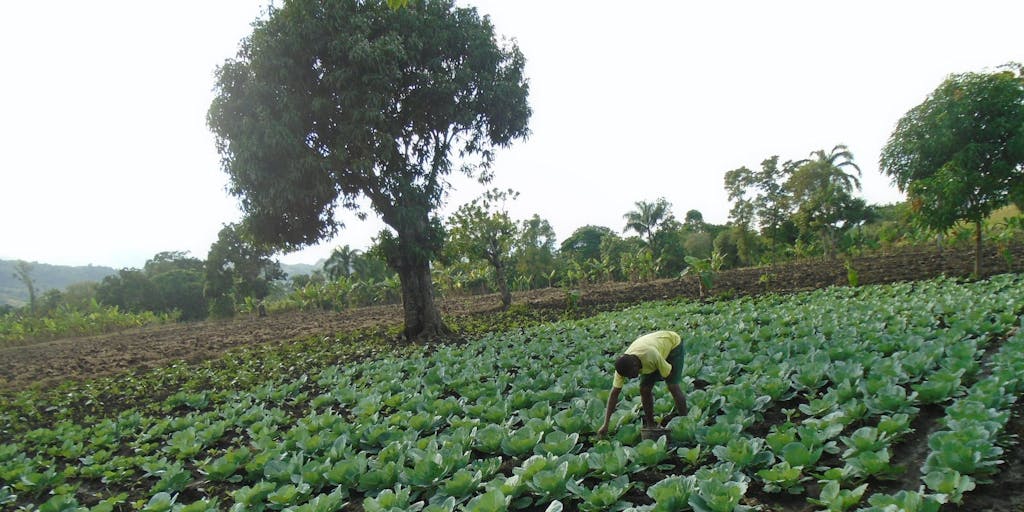It’s planting season in the northern hemisphere. For gardeners like me, spring is the most hopeful time of the year. My garden is full of young plants promising tomatoes, melons, and zucchini by the end of the summer. Of course, not every plant will produce what its seed packet promises. That’s part of the fun and mystery of gardening. With any given garden, you never know which varieties will produce abundantly, and which will disappoint.
In farmers’ fields around the world, seeds are sprouting on a larger scale. Subsistence farmers–those who rely on the land for their livelihood–are sowing seeds, hoping for rain, and praying for a good crop.

Throughout most of human history, societies have been agrarian, meaning that most people lived on farms. We see hundreds of farming analogies in Scripture. For those of us who live in cities and suburbs, it’s helpful to consider the realities of farm life when we read these passages. Let’s look at a passage from the wisdom of King Solomon that gives important lessons to all of us, even city dwellers.
Whoever Watches the Wind Will Not Plant
Against the backdrop of an agrarian society, Solomon writes his book of wisdom, Ecclesiastes. In it, he borrows a metaphor from agriculture to illustrate truths about giving, investing, and trusting God.
Whoever watches the wind will not plant;
whoever looks at the clouds will not reap.
As you do not know the path of the wind,
or how the body is formed in a mother’s womb,
so you cannot understand the work of God,
the Maker of all things.
Sow your seed in the morning,
and at evening let your hands not be idle,
for you do not know which will succeed,
whether this or that,
or whether both will do equally well.
Ecclesiastes 11:4-6
Waiting for the Perfect Weather
It’s hard to imagine predicting the weather without our modern tools. Today, we need only glance at our phones to see what kind of weather to expect as far as 10 days from now. For most of human history, the weather has been quite unpredictable.

Have you ever tried to predict the weather by looking at the clouds or observing the wind? It’s not often accurate. What if your entire livelihood depended on it? That was the reality for farmers in Solomon’s day. Planting seeds one day versus a week later could mean the difference between an abundant harvest and going hungry, depending on rainfall, heat, and natural phenomena.
In this passage, Solomon urges the reader not to focus too much on the weather when they plant. Instead, he says, “Sow your seed in the morning, and at evening let not your hands be idle, for you do not know which one will succeed.” In other words, go for it! Then, work hard.
Seizing the Moment
Imagine what a waste it would be for a farmer to wait for the perfect time to plant, always doubting, and miss the growing season entirely. His family would go hungry, and his land would lay fallow.
Not many of us are farmers today, but we all have opportunities. How many of us put off good, important decisions because we aren’t sure that the timing is right? I have met couples who waited to have children until their careers were established, only to experience infertility when they finally felt ready. Others may put off a job change, a financial investment, having an important conversation with a loved one, or telling someone about Jesus.
John Gill wrote, “If nothing is done till all difficulties are removed, no good thing will ever be done.”
We simply can’t predict the future, and we don’t know how today’s variables will impact us tomorrow.
Solomon urges the reader not to put off planting seeds. He makes the point that God is always working, and because we can’t understand God’s ways, we should take risks and then work hard to achieve positive outcomes.
The Way of Wisdom
Of course, Solomon never disregards wisdom. His writings are full of admonitions to plan wisely, such as Proverbs 21:5: “Good planning and hard work lead to prosperity, but hasty shortcuts lead to poverty.”
Jesus also advises wisdom and planning, such as in His analogy of building a tower. “Suppose one of you wants to build a tower. Won’t you first sit down and estimate the cost to see if you have enough money to complete it?” (Luke 14:28)
It’s important to consider all of the factors when we make decisions. We must plan ahead, counting the cost of completing that which we start. The Ecclesiastes passage simply offers the perspective that we can’t allow over-planning to get in the way of starting something good.

Caution Versus Generosity in Giving
In addition to decisions that affect our own lives, this passage has an application for our generosity. Seed sowing in Scripture is often a metaphor for giving to the poor.
Notably, 2 Corinthians 9:6-10 speaks of giving generously.
Remember this: Whoever sows sparingly will also reap sparingly, and whoever sows generously will also reap generously. Each of you should give what you have decided in your heart to give, not reluctantly or under compulsion, for God loves a cheerful giver. And God is able to bless you abundantly, so that in all things at all times, having all that you need, you will abound in every good work. As it is written:
“They have freely scattered their gifts to the poor; their righteousness endures forever.”
Now he who supplies seed to the sower and bread for food will also supply and increase your store of seed and will enlarge the harvest of your righteousness.
There is a sense of release in the concepts of being a cheerful giver and “freely scattering” gifts to the poor. Specifically, the image of sowing generously evokes a happy, hopeful farmer planting his or her seed, while the image of sowing sparingly brings to mind a fearful, stingy person. If we would hope for happiness for ourselves, the 2 Corinthians passage seems to be saying that generosity is the way to achieve it.
Back in our Ecclesiastes passage, the admonition to be active both in the morning and the evening can be applied to giving. Matthew Henry points this out in his commentary on Ecclesiastes.
Give to many, to seven, and also to eight; if thou meet with seven objects of charity, give to them all, and then, if thou meet with an eighth, give to that, and if with eight more, give to them all too. Excuse not thyself with the good thou hast done from the good thou hast further to do, but hold on, and mend. In hard times, when the number of the poor increases, let thy charity be proportionally enlarged. God is rich in mercy to all, to us, though unworthy; he gives liberally, and upbraids not with former gifts, and we must be merciful as our heavenly Father is.
When giving, we may be inclined to hold back because we have given before, or because we are worried that we ourselves will lack. But it’s difficult to argue with Henry’s reminder that God has been more than generous with us, and He tells us to follow in His steps.

Let’s Plant
The Living Bible paraphrases verse 4 this way: “If you wait for perfect conditions, you will never get anything done.”
Is there something in your life that you’ve been waiting to start because the conditions haven’t been perfect? Have you hesitated to give because you didn’t feel that you had enough? Or has God called you into something that you’re afraid to pursue? Maybe He is nudging you to take the next step today. Stop watching the wind and clouds, and put yourself to work.
Continue Reading:
The Poor You Will Always Have With You—What Did Jesus Mean?
Ending Poverty Together: Appreciating the Beauty of the Present Moment



